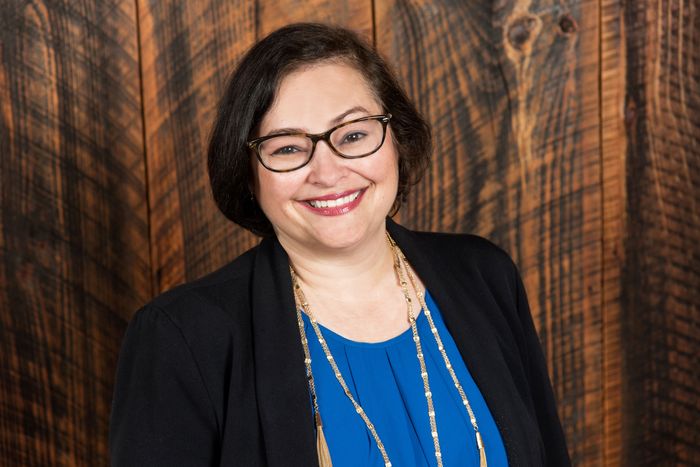
The past few years have been groundbreaking for women in politics: In 2018, more women campaigned for elected office than at any time in U.S. history, and there are now more women in Congress and state legislatures than ever before.
In running, first-time female candidates overcame some of the long-standing barriers that have historically kept women off the ballot; they stopped questioning if they were qualified enough, and they didn’t wait for someone to encourage them to run. But they still encountered some of the same sexism and misogyny that have long plagued female candidates. Women with young children faced concerns from voters about their ability to handle the demands of both their families and their constituents; female candidates were the subject of sexualized and threatening attacks online, and they still faced implicit bias.
So, has anything changed? For her new book, See Jane Win: The Inspiring Story of the Women Changing American Politics, out August 27, journalist Caitlin Moscatello spent the past two years following a diverse group of women as they ran for office all over the country. Here’s what they told her about the challenges of being a woman running for office in the current political climate.
Florida State Representative Anna Eskamani
On rumors suggesting she was sleeping with a male lawmaker:
“It was so frustrating. I’m like, really? Yeah, he and I are friends, but just because I’m a successful Democratic candidate doesn’t mean I’m sleeping with someone to get there … There’s this notion, ‘Oh, she’s strong and powerful and raising a lot of money, there has to be someone she’s sleeping with.’ There’s this perception that I can’t be alone and single and focused in my own aspirations and prioritize the needs of others before mine — as if I have some sort of special connection that got me here? It’s like, no, it’s just my hard work. It’s my resilience.”
Congresswoman Abigail Spanberger
On being asked about self-care while campaigning:
“I think it’s because I’m a woman. All these women will be like, ‘Are you doing okay? How’s your self-care?’ I’m like, I don’t have fucking self-care! I’m running for Congress. I’ll take a nap in November. Do you want me to win this, or do you want me to go to yoga?”
New York Assemblywoman Catalina Cruz
On being outside powerful donor networks:
“When you’re not the pick of the ‘Establishment,’ and when you grow up as poor as I did, you don’t come with that wealth of connections of people that have $4,000 to just put on the table and say, ‘Here, go run your campaign.’ It doesn’t work like that.”
Congresswoman Lauren Underwood
On running as a woman of color and reactions within her own party:
“[People are always] like, ‘Oh wow, this is intriguing! Can she win?’ That’s a dangerous conversation, ‘Can she win?,’ because if we as Democrats doubt that I can be successful, I will not be successful … I have to be honest with you, I stopped doing those articles, Wow, a black woman running in a white area. This is so fascinating. Really? When they publish that, it is unhelpful for me in my district because it brings up this ‘Can she win?’ question.”
Tennessee State Representative London Lamar
On canvassing alone as a woman:
“One of the semi-scariest times canvassing was when I knocked on this man’s door and he opened the door and he had on nothing but a towel. He’s looking me up and down in a really disrespectful, Oooh, girl type of way. I’m standing at the door trying to say my spiel, but in the back of my head I’m like, This man could stash me in his house and rape me. I gave him the spiel and the push card and I got off that porch … I’d had other men make comments like, ‘You’re so cute, baby girl,’ but this time, I felt really uncomfortable.”
Krish Vignarajah, 2018 Maryland gubernatorial candidate
On fundraising when your friends aren’t old, rich men:
“My network is still paying off student loans. They’re coming off maternity leave. Whereas I’m running against guys who are basically on the cusp of retirement, as are their friends. So [a donation] is like disposable income to them, like, ‘Here you go!’”
Gina Ortiz Jones, 2018 Texas U.S. House candidate running again in 2020
On being targeted for being a lesbian during a 2018 Democratic-candidate forum, where an opponent suggested she “flood the district” with fliers about her sexual orientation:
“I was surprised at the silence of the other people on that stage. Which was, to me, as alarming [as the attack itself]. Because if you can’t defend somebody three inches from you, it’s really hard for me to think that you’re going to be able to stick up for anybody that you haven’t met, or that you haven’t seen, and that are thousands of miles away from you.”
Deborah Gonzalez, former Georgia state representative
On pressure to hide her ethnicity:
“My name is Deborah Gonzalez. I never changed it when I recently got married. My husband’s name is Scott. Advisers wanted me to change my name to Deborah Scott for the campaign. I told them, ‘Deborah Scott doesn’t exist, I don’t know that woman.’ And they said, ‘Deborah Gonzalez Scott.’ I was like, ‘Listen, guys, I’m a lawyer, I have been published under Deborah Gonzalez, I am not going to change my name. You wouldn’t ask that of a white candidate.’”
Adapted from See Jane Win: The Inspiring Story of the Women Changing American Politics by Caitlin Moscatello. Copyright @ Caitlin Moscatello 2019. Reprinted by permission of Dutton.









